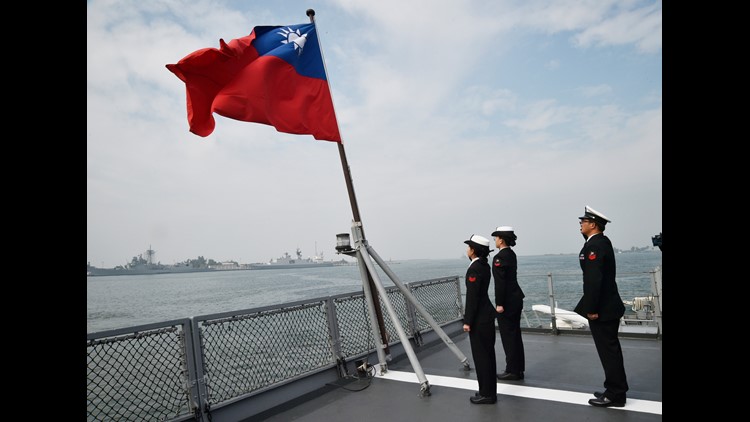Taiwan wants to buy advanced new weaponry from the United States, the island’s President Tsai Ing-wen said Wednesday.
Speaking during a visit to Hawaii, Tsai said requests had been submitted to buy new F-16 fighters and M1 tanks.
The move comes after the US Defense Intelligence Agency warned in January that China had rapidly modernized its military to improve its ability to fight regional conflicts over places like Taiwan, which Beijing regards as part of its sovereign territory.
“Beijing’s longstanding interest to eventually compel Taiwan’s reunification with the mainland and deter any attempt by Taiwan to declare independence has served as the primary driver for China’s military modernization,” the DIA said in a report.
Tsai said the weaponry she had requested from Washington would “greatly enhance our land and air capabilities, strengthen military morale and show to the world the US commitment to Taiwan’s defense.”
In response, China’s Defense Ministry said Beijing was “firmly opposed to US arms sales to Taiwan and US military contact with Taiwan.”
“The Taiwan issue belongs to China’s internal affairs, concerns China’s core interest and the national bond of the Chinese people — it allows no outside interference,” spokesman Wu Qian said.
“Such dangerous moves aren’t in the interest of either side.”
‘Aggressive approach’
Cross-strait tensions have been on the rise in recent years, as Beijing attempts to pressure Taiwan over what it fears is growing support for independence on the self-ruled island.
Taiwan has been de facto independent from mainland China since the end of the country’s civil war in 1949 when the losing nationalist government fled to Taipei. China’s Communist Party has always maintained that Taiwan is part of its territory and vowed to pursue reunification, vacillating between building economic and social ties with the island and threatening it militarily.
In her New Year’s address, Tsai called on Beijing to “face the reality of the existence of the Republic of China,” referring to the island by its official name. She also urged Beijing to “respect the commitment of the 23 million people of Taiwan to freedom and democracy.”
The following day, Xi called Taiwan independence “a dead end” and encouraged the island to follow the “one country, two systems” model adopted in Hong Kong when it moved from British to Chinese control in 1997.
Tsai said earlier this week that Taiwan “absolutely will not accept the ‘one country, two systems’ model.”
She took a forceful tone Wednesday, saying Taipei would take an “aggressive approach to counteract the Chinese government’s infiltration of our society and economy, as well as their interference in our domestic affairs.”
“They have continued to undermine our democratic institutions, heighten military tensions and degrade our international space. This has led to growing distrust by the people of Taiwan, posing an underlying challenge to the future of cross-strait relations,” she said. “China’s actions have underscored the need for Taiwan to increase our self-defense and deterrence capabilities.”



